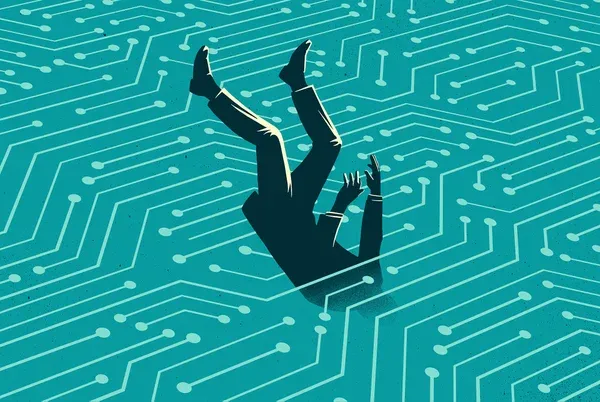What if your next developer didn’t need coffee, worked across 20 time zones, and learned from every bug ever fixed? That’s not science fiction—it’s the rise of AI agents in software development.
These aren’t just autocomplete helpers. From AI-assisted coding to code review automation and workflow orchestration, AI agents are quietly becoming core teammates in modern software engineering. The future of software development won’t be human vs. machine—it will be human with machine.
What Are AI Agents in Software Development?
AI agents are autonomous, intelligent systems designed to plan, reason, and act inside development workflows. Unlike simple automation, they can understand requirements, generate code, write tests, and even deploy updates with minimal human input.
Think GitHub Copilot X translating plain English into functional code. Or Codeball reviewing pull requests for bugs and security flaws before a human sees them. Or Snyk scanning dependencies in real time.
Gartner projects that by 2026, 75% of enterprises will use AI software development agents for at least 30% of coding tasks (Gartner).
AI-Assisted Coding: From Helper to Builder
AI-assisted coding has exploded. Tools like Copilot X, TabNine, Amazon CodeWhisperer, and CodiumAI now generate entire modules, not just snippets. They suggest edge cases, auto-generate unit tests, and learn your codebase’s style.
The payoff? GitHub’s 2024 survey showed developers using AI tools completed tasks 55% faster and reported 74% higher satisfaction (Pluralsight). Startups are launching MVPs in weeks instead of months.
- FinTech firms use AI to build compliance-ready APIs.
- Healthcare platforms rely on CodiumAI for HIPAA-compliant test coverage.
- Gaming studios optimise performance across GPUs with TabNine.
The twist: with great power comes great risk. AI-generated code can carry bias, security gaps, or licensing concerns. Privacy-first regulations like the EU AI Act and India’s DPDP Act demand accountability. That’s why ethical AI adoption—human oversight, audit trails, and explainable outputs—is becoming part of the job.
Code Review Automation and Quality at Scale
Bug fixing and testing still consume up to 35% of developer time. AI agents are rewriting that equation.
Tools like DeepCode (Snyk Code) and Codeball provide real-time code review automation—flagging vulnerabilities, suggesting performance improvements, and enforcing style consistency. Unlike static tools, they learn from millions of open-source commits, spotting patterns humans miss.
One fintech software development company reported a 40% reduction in release times after deploying AI-driven review agents. Faster delivery, fewer regressions.
AI Agents as Workflow Orchestrators
Beyond coding, AI agents are taking over the pipeline. They can:
- Convert product requirements into sprint plans.
- Assign tasks based on developer history.
- Monitor CI/CD pipelines and auto-roll back failed deployments.
At Microsoft Build 2025, engineers demoed AI agents that spin up entire environments in minutes—removing DevOps bottlenecks (Microsoft).
This isn’t automation—it’s autonomous orchestration.
Will AI Replace Developers?
Short answer: no.
AI agents accelerate routine tasks, but developers remain essential. They define complex business logic, resolve edge cases, and ensure products are ethical, user-friendly, and compliant.
Tomorrow’s developer won’t just type code. They’ll curate, guide, and supervise AI outputs—moving into more strategic and creative roles. In other words, AI won’t replace developers. Developers who know AI will replace those who don’t.
Responsible AI: Privacy, Ethics, and Sustainability
As AI agents in software development scale, three rising challenges dominate the conversation:
- Ethics – AI trained on biased data can generate discriminatory or unsafe outputs. Teams must ensure fairness and auditability.
- Privacy – Regulations like GDPR and DPDP demand privacy-first design. AI code must be secure and explainable.
- Sustainability – Large AI models consume enormous compute power. Cloud providers like Microsoft Azure and Google Cloud are pushing carbon-neutral AI initiatives, and developers are adopting green coding practices to cut emissions.
In short: AI agents should not only be powerful but also responsible, private, and sustainable.
The Business Edge for Software Development Services
For any software development company, AI agents are no longer optional. They:
- Deliver projects up to 2x faster (Index.dev).
- Cut post-release bugs dramatically.
- Enable leaner teams to serve more clients at scale.
In a market where speed and quality drive competitiveness, software development services built around AI agents will set the new benchmark.
The Road Ahead: Multi-Agent Collaboration
The next leap? Teams of AI agents working together.
One handles frontend, another secures APIs, a third optimises databases—while syncing with human teammates in real-time. Biz4Group predicts multi-agent systems will dominate large-scale projects by 2027.
The smartest coder on your team in 2025 may not be human. It might be an AI agent quietly orchestrating your workflow.
Conclusion
The future of AI agents in software development is here. From AI-assisted coding and code review automation to workflow orchestration, these intelligent systems are reshaping how software is delivered.
The question isn’t if AI agents will transform software engineering. The question is: Are you ready to build with them, responsibly and sustainably?
Because in tomorrow’s software industry, the winning formula is clear: human creativity + AI agents = unstoppable innovation.

